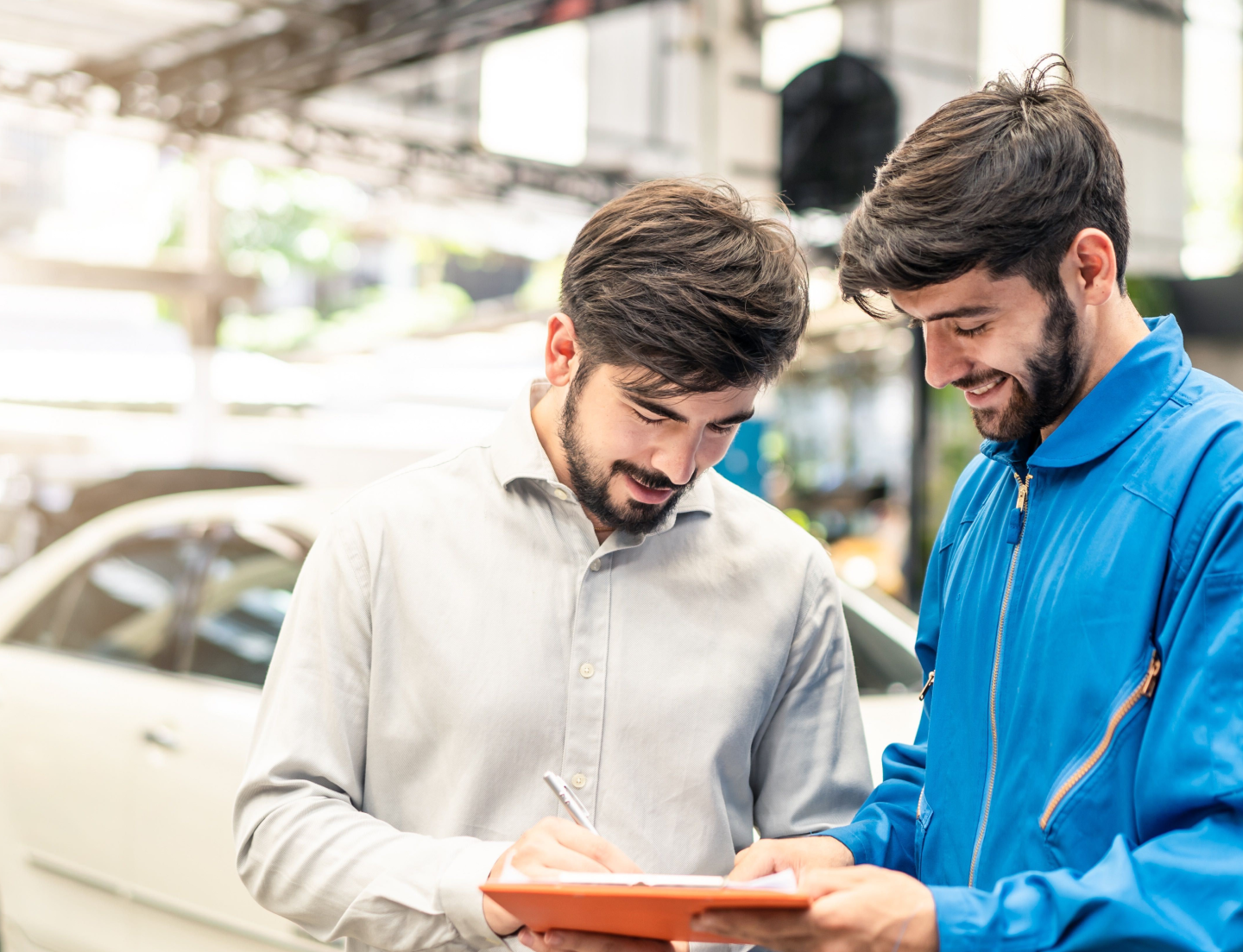Your braking system is an irreplaceable part of your vehicle. When you hear those dreaded squeaking noises or feel a jolt in your brake pads when braking, it’s time to get your vehicle checked out at a brake repair shop. Even if all sounds and feels fine, it’s always good practice to get your brakes inspected when you get your tires rotated (about every six months). Brake Works can do most brake repairs, often at a better rate than others. What should you look for when you suspect brake issues?
Looking and Listening
The best ways to identify brake wear issues is by looking at your pads and listening when braking.
• Look at your brake pads between the spaces in your wheel’s spokes. There should be at least one-fourth inch of pad. If you see less, it’s best to have your brake pads inspected or replaced.
• A common method of identifying brake issues is a high-pitched screeching sound when you apply your brakes. It may not be loud enough to hear over the radio or air conditioning, so listen carefully.
• If your pedal “sinks” toward the floor even when only slightly pressed upon, this could signal a leak in your braking system. Another sign is a small puddle of slimy fluid when your car is parked.
• If your vehicle pulls to either side while braking, this could indicate brake lining wearing or foreign matter in your brake fluid.
If your vehicle is experiencing any of these problems, it’s best to get your brakes inspected at a trustworthy, reliable brake repair shop. An effortless way to make sure your local brake shop is trustworthy is to look at reviews. Facebook, Google, and sites like Angie’s List are great sources. Be sure you’re looking for reviews on customer service and convenience, not just pricing.
Unfortunately, since brake repair is typically on the higher end of costs, it’s common for dishonest repair shops to rip off customers. Avoid these common brake repair rip-offs:
• Buying New Brake Calipers — Although there are times when calipers need to be replaced, a binding caliper can also be fixed with new slide pins and hot synthetic grease. New caliper pins can save you over $300 and will guarantee your brakes for an additional 40,000 miles. However, if your caliper is leaking fluid or your piston won’t retract, the calipers must be replaced.
• Paying Premium Prices for Generic Pads — It’s worth the investment to pay top dollar for your vehicle’s parts, but be sure you’re getting the parts you pay for. If a shop claims it’s installing premium pads, but your price quote includes charges for hardware, ask questions. Real premium pads will include all required hardware.
• Getting Up-Sold to Ceramic Pads — Ceramic pads sound luxurious and look better on your wheels but are not always the best recommendation for vehicles. If you haul heavy loads or do a lot of stop-and-go driving, semi-metallic pads will last longer and provide better braking.
Additionally, find out if a brake repair shop holds certifications, such as an Automotive Service Excellence certification.
Brake Works is not only ASE certified but also has almost 30 years of experience in taking care of San Antonio’s braking problems. We handle the following common brake repairs:
• Cylinder Leaks — The master cylinder acts as a reservoir, holding the brake fluid until it’s needed to apply hydraulic pressure to the pads or linings. But sometimes the cylinder develops a leak, which causes your pedal to slowly sink to the floor when pressed upon. This is a warning sign that shouldn’t be ignored.
• Brake Line Leaks — The brake lines transfer the fluid from the master cylinder, and like the cylinder, they can develop leaks. Some signs of leaks are reduced brake firmness and streaks of fluid along the lines. This is a very serious problem that requires immediate attention.
• Brake Pad Wear — Brake pads or linings are what make vehicles stop by applying pressure against components called rotors, or in some cars, drums. Over time, pads and linings begin to wear. When this occurs, you’ll begin to hear a gravely grinding sound each time you apply the brakes. To avoid causing severe damage to your car, bring it into a brake repair shop as soon as possible after you hear this sound.
• Brake Caliper Replacement — Brake calipers hold the pads in place and press them against the rotors when necessary with a component called a piston. Occasionally, a caliper can either develop leaks or even lock up entirely, making replacement necessary.
Although brake pad replacement is virtually necessary for every vehicle after a certain amount of time or mileage, there are still things you can do to prevent unnecessary wear and tear on your car brakes.
• Do your best to prevent high-speed braking. Stopping from just a small difference from 55 mph to 65 mph forces your brakes to dissipate about a third more energy. Less speed means less heat on your brakes, which prevents leaks and scraping.
• Pay attention to changing traffic lights. By looking far ahead on surface streets, you’ll be able to correctly time stoplights to prevent hard braking at a yellow light. Additionally, this extra attention will allow you to notice traffic backing up or slowing down earlier, so you can plan accordingly.
• Flush your brakes. If you have an older vehicle or a vehicle purchased used, renew your brake fluid. This should be routinely changed to make your car brake’s internal components last longer.
When that dreaded “check engine” light comes on or you’re hearing squeaking sounds when braking, it’s time to bring your vehicle into Brake Works. We have two conveniently located San Antonio stations, and our certified mechanics can address virtually any brake issue and maintain the braking power of your vehicle for many road trips to come.



